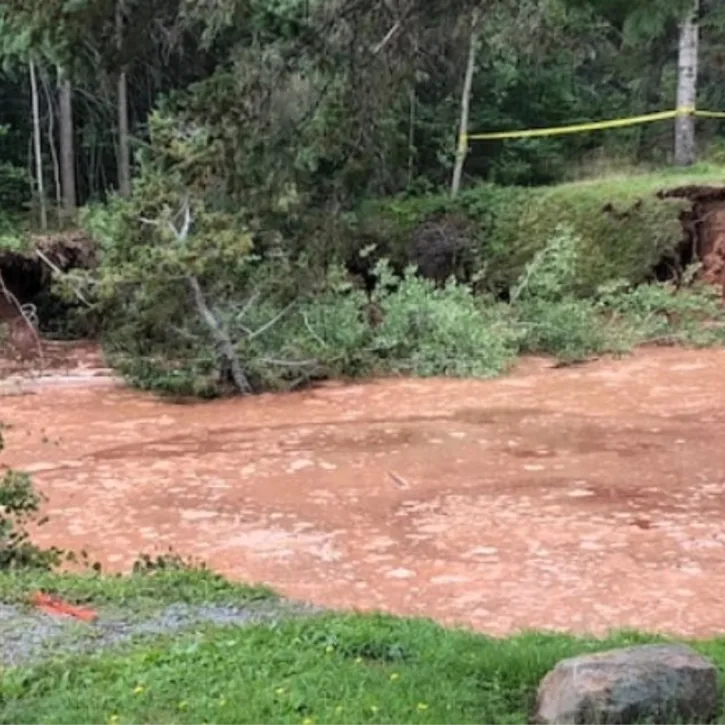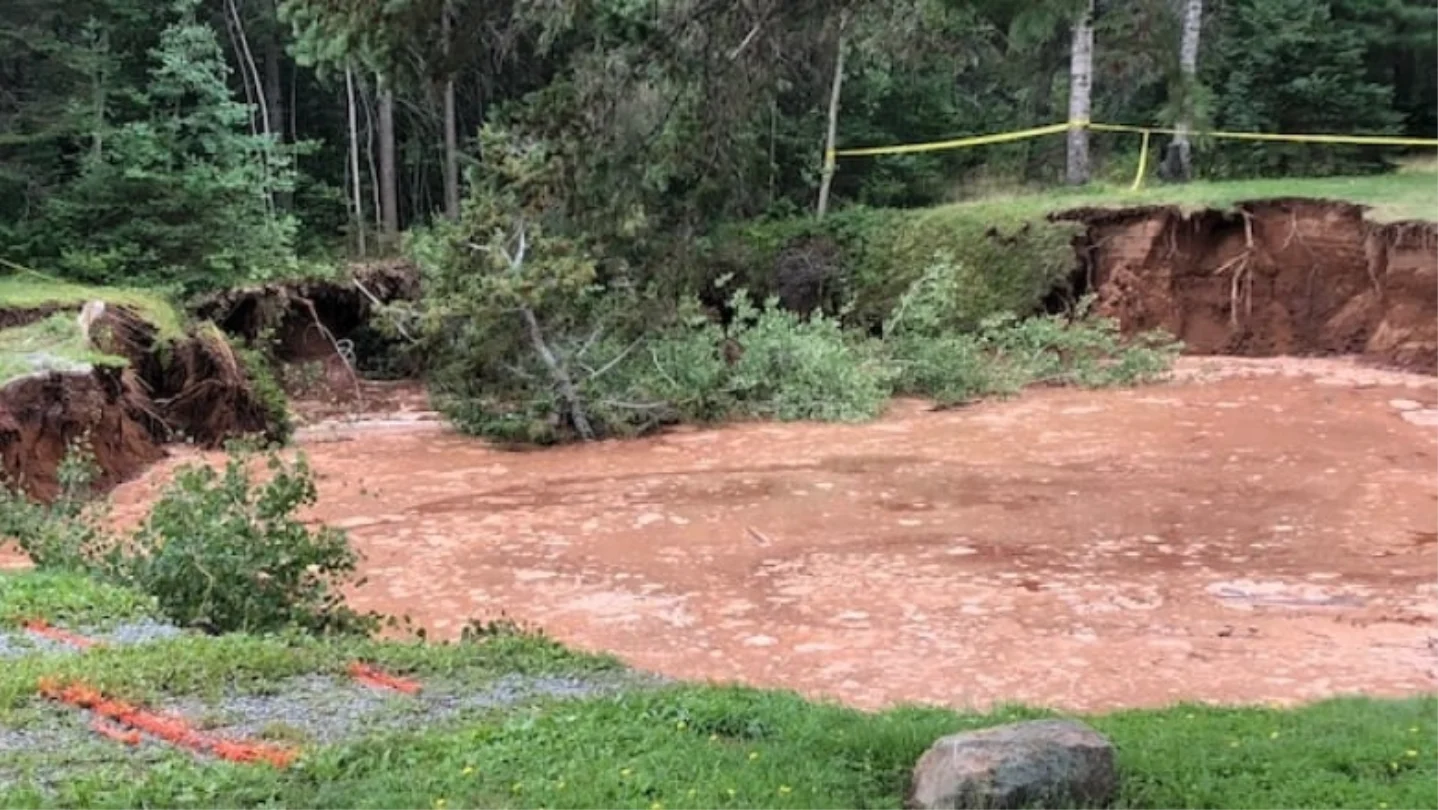
Oxford seeks funds to get to the bottom of sinkhole woes

Image: The sinkhole in Oxford, N.S., started small, but grew to swallow trees, picnic benches and part of a parking lot. (Preston Mulligan/CBC)
Oxford is seeking federal funding to get to the bottom of its sinkhole woes.
A sinkhole opened up in Oxford in the summer of 2018, and quickly expanded to swallow trees, picnic tables and part of a parking lot.
Local officials are hoping the funding could help determine how much more the sinkhole is likely to grow and whether the problem will expand beyond the Oxford sinkhole itself.
RELATED: Sinkhole creating 'devastating loss' in East Coast town
Mike Johnson, the regional emergency management co-ordinator for Cumberland County, said the sinkhole has been frozen for much of the winter. Change is expected as temperatures warm up.
But when it comes to how much things could change, Johnson doesn't know.
"And until we have the geophysical, geotechnical work that needs to be done, showing us what's going on underneath, we won't know how much activity we're going to receive."
WATCH BELOW: SINKHOLE A GROWING CONCERN IN OXFORD (AUGUST 2018)
OTHER AREAS OF CONCERN
Johnson told CBC's Information Morning that the Oxford sinkhole isn't the only area of concern.
Officials are watching a depression along the Trans-Canada Highway, near the exit to Oxford, which showed up around the same time as the sinkhole did.
Johnson said there's enough consistency to suggest that the depressions are connected to one another and are not just potholes.
SEE ALSO: Vancouver Island might be (temporarily) changing direction
AREA PRONE TO SINKHOLES
The geological formation of the area around Oxford makes it prone to developing sinkholes, both ones that have yet to be discovered and those hiding in plain sight.
"If you drive along the side of the Trans-Canada Highway, what appears to be lakes … are all sinkholes," Johnson said.
Geological testing could help identify undiscovered sinkholes and find solutions before they lead to more significant problems.
Cumberland-South MLA Tory Rushton said federal funds would help offset the costs of testing, which would be difficult for the town to cover on its own.
Rushton said his understanding is that costs for the next round of geological testing are about $130,000, which includes some costs already incurred by the town.
He said testing wouldn't just generate answers, it would also bring about greater peace of mind.
"Is there going to be an issue that arises this coming spring or summer, or a year down the road? What is under under that ground? Where is that sinkhole going to lead to next? … We really need to know the answers to secure safety for the residents."
FROM THE ARCHIVE: WHAT STARTED AS A GOPHER HOLE IS NOW A 40-FOOT WIDE SINKHOLE THANKS TO WEATHER
This article was originally published for CBC News. Includes files from CBC's Information Morning.





